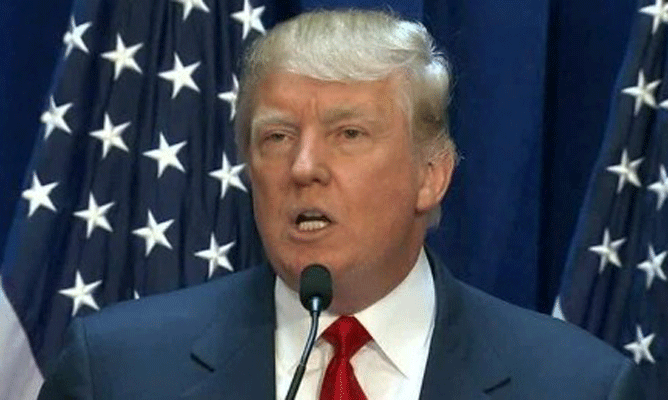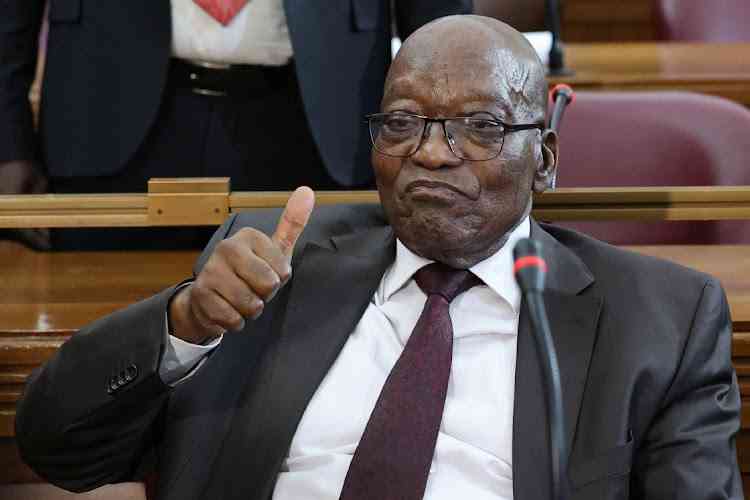
FORMER United States President Barack Obama must at some point in his youth, have loved and been inspired by President Robert Mugabe, the freedom fighter and Zimbabwe’s first Prime Minister. Who wouldn’t? All that talk about beating weapons into plowshares, peace, non-racism, pan-Africanism, forgiveness, reconciliation, nation building focused on the poor would have had the great and good giving him a standing ovation anywhere in the world. That charm had captured the heart of American Ambassador Young when he first met Mugabe in Maputo. Obama admitted he was disappointed by Mugabe, and possibly Zimbabwe, during his terms as President of the United States and Commander-Chief of the World’s largest arsenal. Obama was not alone in liking the Prime Minister. The CIA, according to recently declassified documents, also worried about the safety of the Zimbabwean Prime Minister during the delicate time of transition from colonial rule to majority democratic rule.
OPINION: Tapiwa Nyandoro

The American President, during his term of office, would have been alive to the potential Zimbabwe has and the positive relationship the superpower once had with the small-but-vibrant Southern African State. Of all the foreign students that studied in the States, Zimbabwe, in the early days of independence, had the highest ratio among developing countries that returned home after graduation. President Clinton’s Vice President Al Gore, Obama’s fellow Democrat, liked to visit Zimbabwe from time to time on hunting expeditions. Even the World’s richest man, Bill Gates, likes to visit for holiday. Many more Americans would come if relationships with their country were back to the good old days. In his days as the world’s most powerful man, Barack Obama would have been aware of all this.
Questions have been asked, sometimes in desperation and exasperation, as to why Barack Obama, hurriedly renewed the limited sanctions on Zimbabwe before leaving office in early 2017. He could have left the task to the incoming Republican President, who it is assumed, given the tone of his campaign rhetoric, might have seen no profit in continuing with the sanctions — that on paper probably hurt American capital as well.
The question that must bother many was whether the expedited renewal of sanctions, albeit a mild version of the usually crippling ones, was an act of malice on Obama’s part; or an act of love for the people of Zimbabwe (rather than its rulers)? Was he poised to invade Zimbabwe and effect regime change; and if so, how and why? Enterprise of that nature has not usually gone according to plan as evidenced by Iraq and later Libya. Had the latter been a success, American boots might have landed in Zimbabwe earlier than anticipated. But are they no longer coming; probably not. US President Donald Trump may see no profit in it. Nation building, reconstruction and development, is expensive business. And Zimbabwe is in that state where all three processes are needed. That would require a new kind of a regime change protocol, probably anticipated by the Zimbabwe Democracy and Economic Recovery Act.
Modify the Petraeus doctrine, and you have one method for re-booting Zimbabwe’s public governance and economic growth. It is the attraction of this modified doctrine that may best explain President Obama’s action in renewing sanctions on Zimbabwe. His hope would have been to keep Zimbabwe a subject in the White House long after he had gone, long enough for his successor to soak up the modified Petraeus doctrine, as an option for deploying in Zimbabwe, preferably with Robert Mugabe’s blessing, and if need be, without it. Andrew Young, sent as an emissary by the Obama administration, was probably exploring the option. All Robert Mugabe had to do was ask.
According to Wikipedia, retired American four-star General David Petraeus commanded American and coalition forces in Iraq, under President George Bush and later in Afghanistan, under President Obama. He looks like he was both Presidents’ favourite general for hotspots with an element requiring nation re-building. The cerebral general has a masters in Public Administration and a Ph. D from the famed Princeton University.
His experience in fighting insurgents, guerillas and terrorists convinced him of the need for a new approach when fighting such wars, as opposed to the antiquated “command” based approach. He emphasised the need to think on the spot for soldiers on the ground, and the need to work with the ordinary citizens in re-building viable and strong national institutions. Above all he called for injection of huge amounts of money to re-build infrastructure, governments, including armies and police forces, and economies basically from the ground. Apparently American Generals in such situations have huge discretionary budgets open for their use. Petraeus used $11 billion to re-arm the Iraqi army his forces were training, and much more to rebuild universities and other infrastructure projects.
- Chamisa under fire over US$120K donation
- Mavhunga puts DeMbare into Chibuku quarterfinals
- Pension funds bet on Cabora Bassa oilfields
- Councils defy govt fire tender directive
Keep Reading
The General believed strongly that “money was ammunition”. He also believed that in fighting insurgency one has “to live amongst the people convincing them one is better than the common enemy”. He famously warned Israel that depending on military superiority alone is not a sustainable security doctrine. It looks like his Presidents agreed. No wonder they likened him to great American Generals such as Ulysses S Grant, John J Pershing, George Marshall (he of the Marshall Plan) and Dwight Eisenhower.
An invasion by Generals following his doctrine could have been the way to reconstruction without many congressional battles for the money. It could have led to the conclusion of the agriculture reform programme, re-capitalisation of the Reserve Bank of Zimbabwe and strengthening of key national institutions. The question is: Did a “Petraeus Plan” ever enter Barack Obama’s mind in relation to Zimbabwe? If it did that may explain his action in renewing sanctions.
Now in retirement from government service, and lecturing at universities, General Petraeus, a soldier’s soldier, expressed a desire in 2013 to help “lead the world out of the “current global economic slowdown”. And is there any better way than to get India, and Africa in particular, to be the engines of global economic growth going forward?












